The television screen illuminates the otherwise dark room. The movie’s antagonist runs for her life as she is chased by the villain. She reaches a room, but little does she know, her assailant is right behind her!
The heart-racing feeling is common to horror lovers of all kinds.
But why do people love to be scared?
As a horror fan, I think a variety of factors come into play depending on the person. Personally, I watch them to relax.
“Physiologically, the responses we have for fear are the same as what we have for happiness or excitement. For some people being scared feels fun. You have a fight or flight response, your blood leaves your internal organs and goes to your limbs, you are ready to run and pumped with adrenaline, and you have a heightened sense of awareness. Some people label this as a fun sensation, others label this as a scary sensation,” said Mrs. Hines, one of Millikan’s AP Psychology teachers.
The adrenaline rush we feel from a fight or flight response can lead to a release of dopamine, making some enjoy and even crave the experience.
Of course, this entirely depends on the person.
Celina Jimenez, a senior in PEACE, said that she feels anxious about jump scares when she watches horror movies. Because of this, she said that she doesn’t like to be scared.
If someone experiences a stress response instead of a dopamine response, it can leave them anxious and unhappy; making them even dread the feelings associated with horror movies.
This is what leads to a divide between horror and not horror fans, it all comes down to how our brains are wired and the experiences we have had. Those who love horror movies really love them and those who loathe them really loathe them.
Sophomores in English are finishing up their unit on the allure of fear, and students taking AP Language and Composition this year should be familiar with an article by Stephen King titled, “Why We Crave Horror Movies.”
In this article, King shares his thoughts on why horror themes are sensationalized. He claims that humans have a primal instinct and need for violence, meaning that observing violent themes in horror movies can scratch that primal itch.
“The mythic horror movie, like the sick joke, has a dirty job to do. It deliberately appeals to all that is the worst in us. It is morbidly unchained, our most base instincts let free, our nastiest fantasies realized,” King claims.
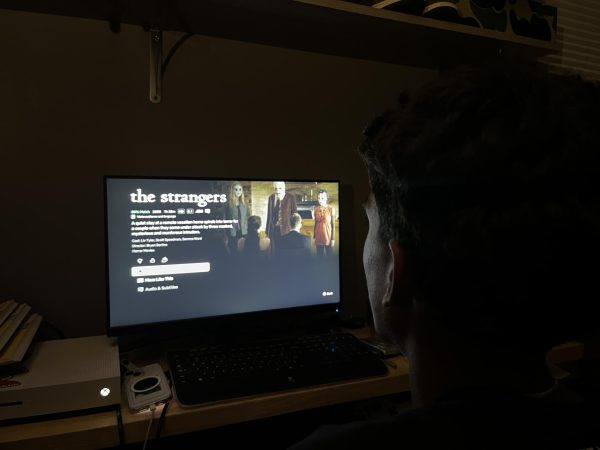
I believe that on top of the dopamine effect and the release of morbid primal urges, horror movies also allow for an escape from reality. They feature unfortunate protagonists in traumatizing situations that allow you to feel anxious for another person and forget your fears for a while.
September through October, hardcore Halloween lovers have the opportunity to put themselves into the story and become the antagonist of their own horror movie. Immersive experiences like Knotts Scary Farm, Universal Studios Halloween Horror Nights, and Six Flags Fright Fest are a step up for intense thrill seekers.
When October ended, so did a lot of Halloween-themed haunts; however, for those who crave a year-round adrenaline rush, horror movies, books, podcasts, and shows will always be waiting with open arms.
Even into the Winter Holidays, Christmas-themed horror movies are a good opportunity to add a little scare to the season.




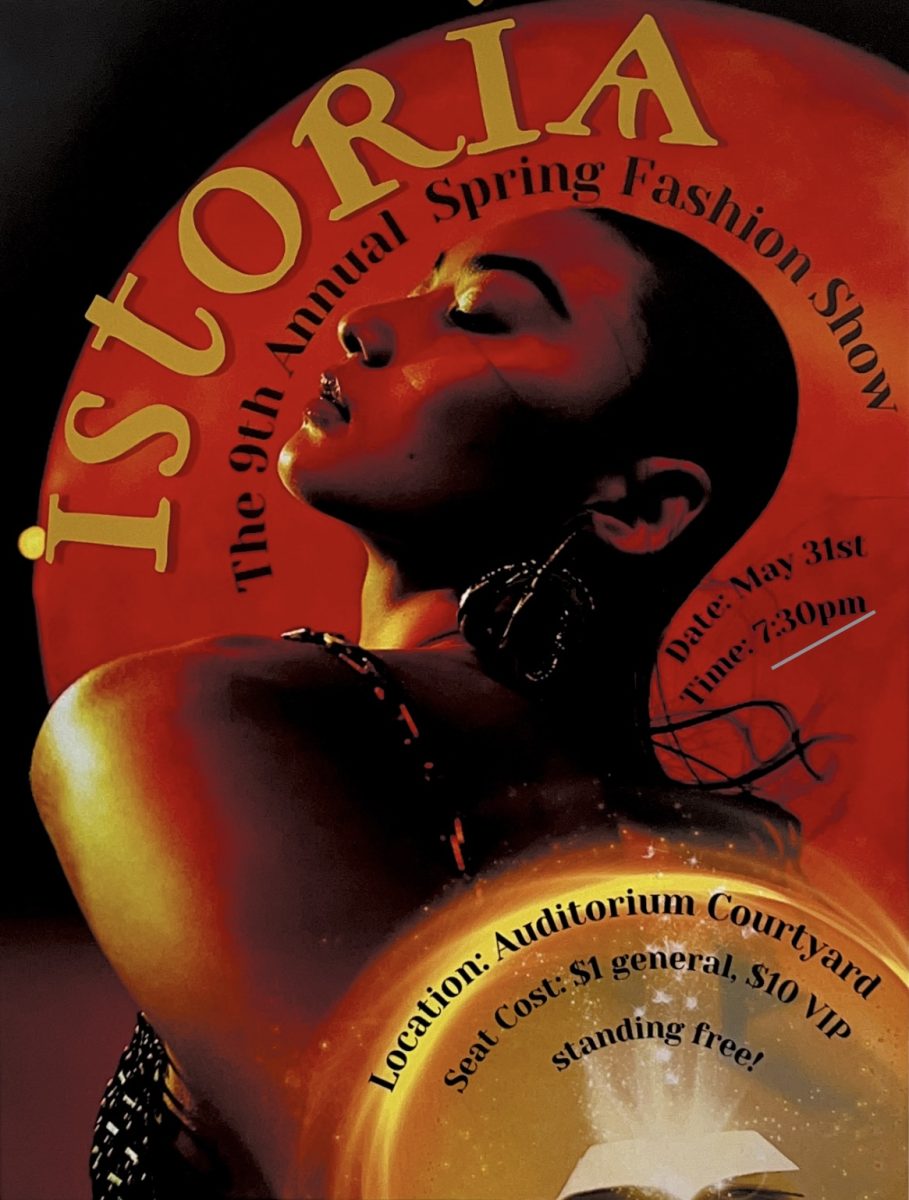












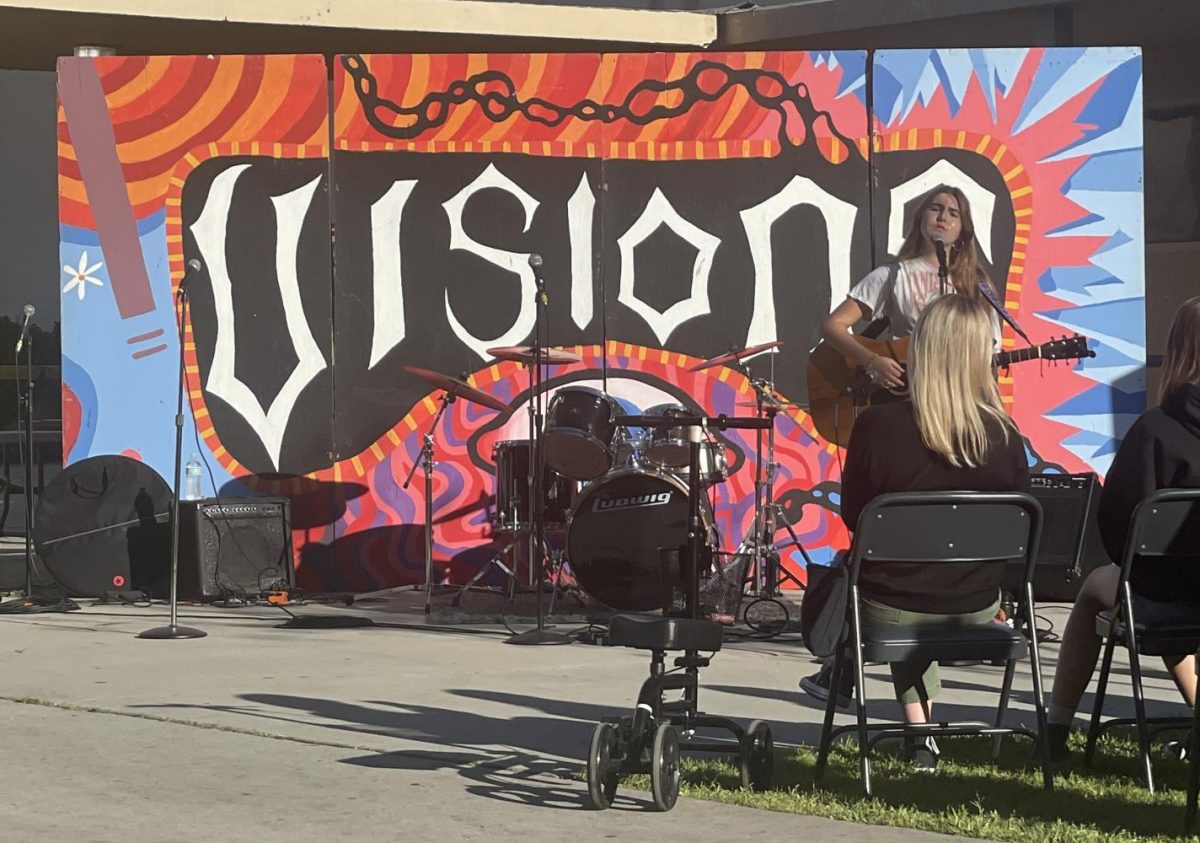


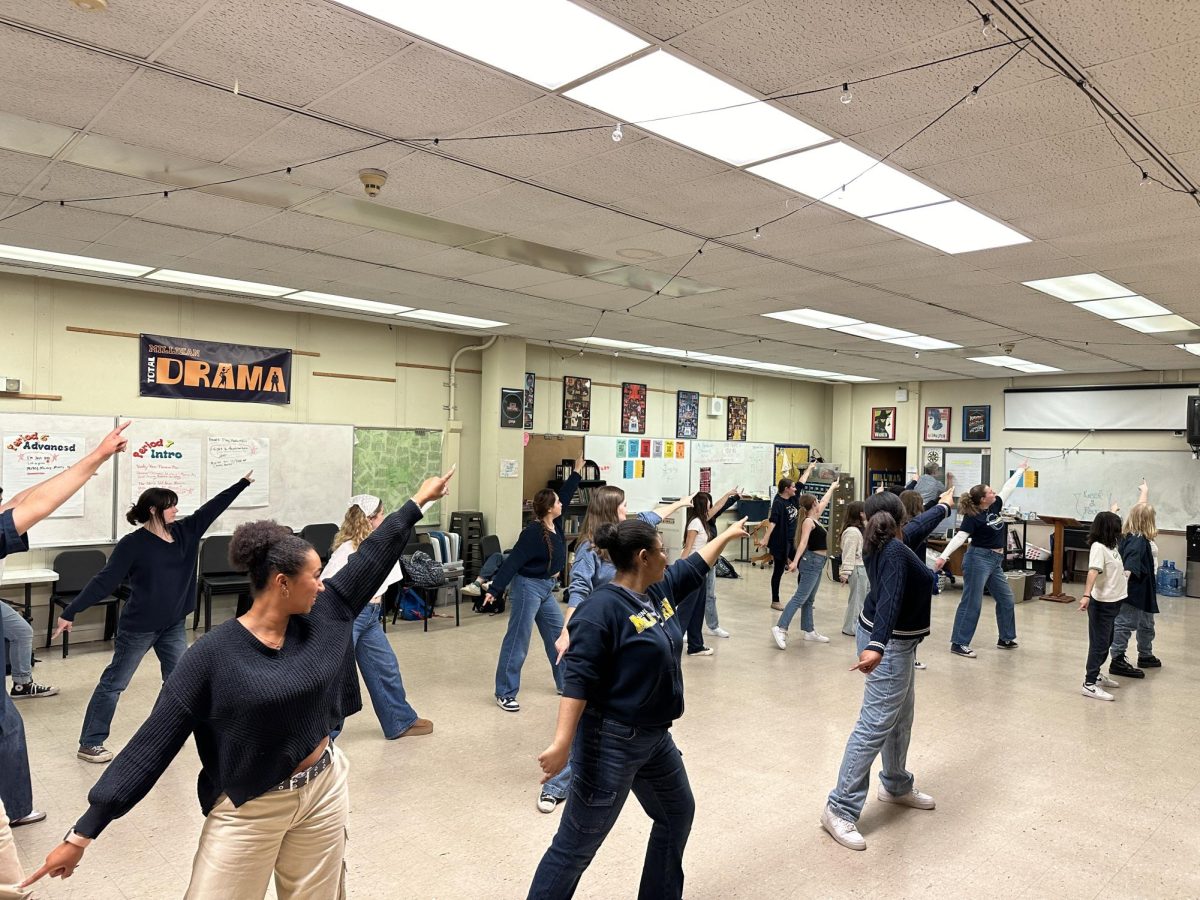

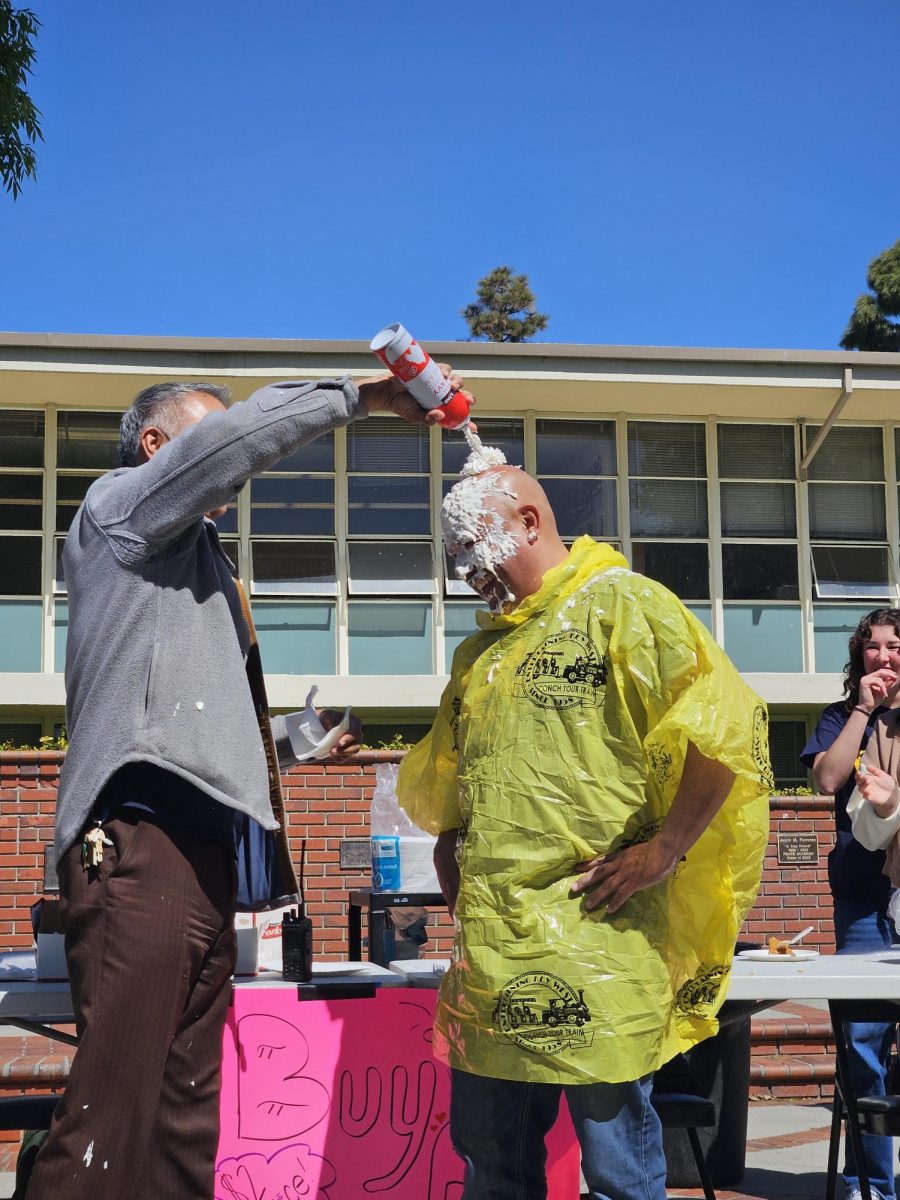








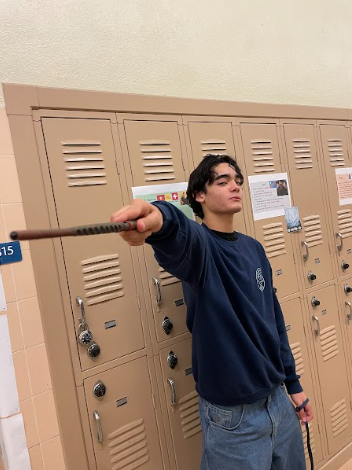

Michael Diaz • Jan 25, 2024 at 12:02 pm
I enjoy how this article explains the reason for our different responses to fear, whether we enjoy it, or are frightened by it. I believe it’s interesting how our minds and bodies physiologically and psychologically react to the sense of fear, and the resulting adrenaline rush we gain from said reaction.
Rachel Q • Jan 25, 2024 at 9:49 am
I enjoyed how this article was well thought out and written. Getting an AP Psychology teacher’s POV of how our bodies react to being scared was genius! It helped me realize that I do enjoy being scared, even if I was a bit freaked out while going through a Universal HHN’s maze.
Jonas • Jan 25, 2024 at 9:18 am
Awesome.
Logan P • Jan 24, 2024 at 9:14 am
I like the way this article was written. I like how it talks about how fear doesn’t always have to be bad and how fear can activate the fight or flight response which can lead to dopamine. I also like the photos that are with this story and how it shows the fear in them.
Syvann V • Jan 25, 2024 at 12:16 pm
As someone who was always been interested in psychology it talk about fear and being scared really well. It showed how people openly enjoy fear and being scared.
Dusten Wilkerson-Huling • Jan 23, 2024 at 11:57 am
While reading this article I was very impressed by the detail explaining the Psychology behind fear and why many people deliberately enjoy it. The top photo was very appealing, which interested me in the article and reading more about it. The first line in the article helped hook me into the story allowing me to start thinking about how this article would go and how well it brings to the topic of fear.
Beatriz Lopez • Jan 23, 2024 at 10:30 am
I think this article is really well written and it really informs me about the different responses people experience when they’re scared. It has also helped me realize that I like being scared
Andrew Chavez • Jan 11, 2024 at 8:54 am
On December 15, 2023 Payton Miller wrote an article titled “The Psychology of Being Scared” after reading this article it has made me realize the enjoyment I receive from being scared, I love to go to knotts and Universal’s Halloween Horror Nights, because of the rush someone gets when fight or flight takes over. I never understood the science behind why that is and the dopamine released, this article does an incredible job at explaining that process. I would like to emphasis or highlight the uses of ethos as Miller interviews Mrs. Hines an AP Psychology
teacher. I would suggest or would like to see more statistics or a graph to show like the brain’s chemical reactions to fear, to have a better understanding of what actually happens to your mind and body when being scared. Overall a very well written and informative article that any reader can benefit from reading.
Francesca Acosta • Jan 10, 2024 at 10:38 am
While reading this article, I enjoyed learning about the intricacies of the psychology behind being scared. As a junior myself, I am familiar with the article by Steven King and I agree with many of Miller’s comments about it. Miller did well in voicing her opinion about fear and why people might get scared, and her line of reasoning makes the article easy enough for one to understand. I also appreciate her explanation of what causes the divide in horror fans and non-horror fans because it allowed me to better understand why a large population enjoy horror and why many have a strong hate towards it.
If Miller were to add to this article, I’d ask for more information, specifically about the psychology of being scared. I believe this article could have more psychological facts backed by evidence from outside sources or from Psychology teachers, which could also help establish credibility in the article.
Ezekiel Zaldivar • Jan 10, 2024 at 10:32 am
On December 14, 2023, Payton Miller wrote an article titled “The Psychology of Being
Scared”. This is a well-written opinion article that effectively informs and engages the reader
throughout the text. The hook was a good way to grab the reader’s attention and adding the
question “Why do people love to be scared?” makes the reader think about something they may
have not thought about before. Including a quote from Mrs. Hines makes the article more
credible and makes the reader trust the information more. Additionally, it was a good idea to
include references to texts that students have read through their english classes because they can
make connections with their background knowledge of the texts and new information in the
article.
Personally, I don’t have a preference for horror movies, but every once in a while a
horror movie can be interesting. I agree with Stephen King because I think people like horror
movies because it’s not something that would happen normally in their everyday lives so people
are drawn to the fact they get to see something different
Tien Woodward • Jan 10, 2024 at 10:08 am
On December 15, 2023, Payton Miller wrote an article titled “ The Psychology of Being Scared.” Payton writes about the reasons behind why horror fans like being scared so much. Something I have been curious about myself, as a horror fan. Recently, having gone to Halloween Horror Nights at Universal Studios with my best friend and experiencing that release of dopamine described in Payton’s article, I have questioned why my friend did not enjoy the experience as much. Well all my questions are answered in this article! Payton states that being scared can either lead to a release of dopamine or trigger a stress response instead, and it can be either depending on the way our brains are wired. Payton also states those who do enjoy the adrenaline of horror, can be left in a state of relaxation while watching a scary movie. From my personal experience, although I still get startled every jump-scare, I am left feeling content and relaxed. Overall, horror is just fun, and I look forward to the next Halloween-themed attraction next year.
Izabella Gonzalez • Jan 10, 2024 at 10:04 am
This article gave us readers an interesting insight into why we may react the way we do when faced with horror. I also enjoyed how the psychological perspective came from a well-known campus teacher as opposed to the web, it gave a closer connection between what we know and what we are learning about psychology from your article. It was also intriguing to hear people’s different perspectives on this topic. I enjoyed how you were able to connect some classes students are taking right now or lessons they may have taken to your article. It shows many students how what they are learning in class may be presented to them in real-time. I found it fascinating how you were able to connect horror and the immersive experiments one can take during the Halloween season but also give those thriller fans alternatives in this new holiday season.
Hayley Skibinski • Jan 10, 2024 at 10:04 am
This article explains the topic of how people are more prone to enjoy horror because of how their brains are wired. Depending on the person, the feeling of fight or flight links to the emotion of either dopamine–the feeling of pleasure, or the feeling of fear. This is the main reason why people are so divided when it comes to their interest in horror. Furthermore, Payton also includes a separate piece of text we’ve read from our English class. Stephen King’s interview also gives more insight on why people are more prone to enjoy horror movies and media of all types of spooky goodness. For me, I adore horror movies; I have always have ever since I was a kid. As a kid, I would watch Youtube videos on my favorite Youtubers playing scary horror games. Although at times I would look away or cover the screen, I would still be drawn to the terrifying imagery.
Danyela Brilliant • Jan 10, 2024 at 10:01 am
Payton describes how people either love, or hate horror and all that comes with it. If you enjoy the thrill of it, it will release dopamine in your brain and create a sense of happiness. If you are someone who dislikes horror, your body will react in a fearful way, because your body goes into fight or flight mode.
Payton is very much a horror fan and claims “I watch them to relax.” There are many people that would disagree with that statement, like me, because I can enjoy a horror movie, but at the same time they still are frightening to watch. According to Stephen King, “He claims that humans have a primal instinct and need for violence, meaning that observing violent themes in horror movies can scratch that primal itch” (Miller). What he is saying is that we all have some sort of need for the experience of horror and crave it because it justifies our inner thoughts and what they are capable of.
Julianne Bermudez • Jan 9, 2024 at 10:17 am
This article is a nicely written report that establishes various reasons as to why many people have a strong love for horror movies. The writer does an excellent job of introducing certain information that is able to support the main idea of her article. The writer suggests that there are several factors that play into why one might enjoy horror movies. She also explains that individuals carry a fight or flight response, which triggers the body to release dopamine, causing a person to either enjoy or crave the experience. As someone who took an Intro to Psychology course my freshman year, I have always found the science behind this topic very interesting. To add on, the writer goes on to engage her audience by pointing out a different perspective of someone who might not enjoy horror movies too much. The writer did an amazing job at describing how this adrenaline rush most people feel can significantly depend on a person. She provides a perfect example of a student from Millikan’s school grounds on how they always feel anxious due to jump scares in a horror movie. The writer then explains that if an individual experiences a stress response rather than a dopamine response, it can ultimately leave the person unhappy and anxious. I also enjoyed how she was able to successfully provide and explain the neurological process behind this. I have never been too fond of scary movies, so I enjoyed that I could relate to the writer’s use of a student example after reading. Overall, I found this article to be very informative and intriguing. Psychology has always been an interesting topic, so I am glad someone took the time to write about this.
Julianne Bermudez • Dec 22, 2023 at 4:27 pm
This article is a nicely written report that establishes various reasons as to why many people have a strong love for horror movies. The writer does an excellent job of introducing certain information that is able to support the main idea of her article. The writer suggests that there are several factors that play into why one might enjoy horror movies. She also explains that individuals carry a fight or flight response, which triggers the body to release dopamine, causing a person to either enjoy or crave the experience. As someone who took an Intro to Psychology course my freshman year, I have always found the science behind this topic very interesting. To add on, the writer goes on to engage her audience by pointing out a different perspective of someone who might not enjoy horror movies too much. The writer did an amazing job at describing how this adrenaline rush most people feel can significantly depend on a person. She provides a perfect example of a student from Millikan’s school grounds on how they always feel anxious due to jump scares in a horror movie. The writer then explains that if an individual experiences a stress response rather than a dopamine response, it can ultimately leave the person unhappy and anxious. I also enjoyed how she was able to successfully provide and explain the neurological process behind this. I have never been too fond of scary movies, so I enjoyed that I could relate to the writer’s use of a student example after reading. Overall, I found this article to be very informative and intriguing. Psychology has always been an interesting topic, so I am glad someone took the time to write about this!
Eliana Tesfaye • Dec 22, 2023 at 12:16 pm
Miller initially begins her article with a well-fitting allusion to her overall message. She elaborates the purpose of her allusion and in doing so, creates a feeling of relation in readers who also watch horror films. Miller’s placement of a statement from an AP Psychology teacher at Millikan is a strategic use of ethos in two distinct ways. Her quote from a teacher who’s profession solely focuses on psychology gives her argument credibility. Additionally, referencing a statement made by a teacher who many of her readers have had before appeals to familiarity. The picture placed below the title of her article also hints to her readers of the topic at hand.
My personal favorite feature of Miller’s well-written article is the use of a quote from one of Millikan’s own students.. Many of Miller’s readers have most likely met or, at least, heard of this student before and relate to her on many different levels. This allows her readers to relate to the message Miller is trying to convey. Miller’s article is a great way to take a break from the holiday spirit and reminisce on scary Halloween festivities that took place a few months back.
Harrison Bruechert • Dec 22, 2023 at 12:06 pm
Dear Corydon Editor,
On December 15, 2023, Payton Miller wrote an article titled “The Psychology of Being Scared”. The article enunciated the internal processes that occur as a result of experiencing or viewing something frightening. Miller did an excellent job citing experts such as Stephen King and Ms. Hines, while also bringing in her own personal viewpoint on the matter. Throughout the article, horror movies are stated to be up to interpretation to the viewer. “Those who love horror movies really love them and those who loathe them really loathe them”, Miller says.
Miller’s article, although being hearty in its citations and anecdotes, is an opinionated essay. Miller, taking the side of those who like horror movies, expresses her own opinion on the topic several times, invoking the reader to take in her point of view. In conclusion, the article, while being of Miller’s angle,understands that the reader may be foreign to horror movies and encompasses a plethora of viewpoints.
Sincerely,
Harrison Bruechert
Elizabeth Torres • Dec 22, 2023 at 10:40 am
The article’s purpose is to explain the pleasure of watching horror films or reading thrilling stories. Miller does a substantial job at adding facts to convince her reader, but also immersing her audience into her piece. Miller tackles the adrenaline portion of horror we feel from a fight or flight response, the dopamine released into the body, our primal itch toward violence, and the short escape from reality. However, she also confronts non-horror fans by explaining why some don’t experience the same appeals when watching scary films. Mainly having to do with a stress response that replaces dopamine. Miller also interviewed the Millikan community, like the Psychology teacher Mrs. Hines and senior Peace member Celina Jimenez. Including students and staff at Millikan in her article, adds an appeal to her audience of Millikan attendees.
I would like to specifically point out the mention of sophomores in English and students taking AP Language and Composition. Miller added that sophomores had a unit on the allure of fear, and AP Language students read the Stephen King article, “Why We Crave Horror Movies.” Personally, having completed a fear unit last year and as a current AP Language and Composition student, adding this small fact undoubtedly made me feel connected to the author’s piece. Ultimately, Miller does an incredible job of making her argument credible, not only by adding analysis but also with her connections to the article and the audience.
Caroline Gass • Dec 22, 2023 at 9:50 am
In this informative article Miller explains to the audience why some people like horror and why some don’t. She begins the article with an engaging hook and then jumps into her reasoning. Throughout the article we are informed that some people like the adrenaline and the feeling that dopamine gives them. Miller also includes supporting statements from Mrs. Hines (AP Psychology teacher) and Celina Jimenez (Peace Senior), which gives more credibility to her article. It was cool having this piece include some of the curriculum Millikan students are learning about.
Overall, Miller put together a short and informative article that helps readers learn more about how their brains are wired.
Ava Valadez • Dec 22, 2023 at 9:47 am
I chose to read Miller’s article because I was very curious about the psychology behind being scared, and about what goes on in one’s mind when they get scared. I thought this was a very well-written and intriguing article to read. Miller says that she finds horror movies relaxing and that others enjoy the adrenaline rush. She also interviewed Millikan senior, Celina Jimenez, and she said that she feels anxious watching horror movies. Personally I feel the same way as Jimenez, so I’m glad Miller included a different point of view. One thing that I think would have improved this already neat article, is a survey or poll from Millikan students asking whether they prefer to be scared or not. I think it would have just been interesting to see that data.
Miller also included a direct quote from Ms. Hines, one of Millikan’s AP Psychology teachers, and I liked how the quote connected to the article and came from a Millikan teacher. As a junior currently enrolled in AP English Language and Composition, I enjoyed the mention of Stephen Kings, “Why We Crave Horror Movies,” because it was relatable and I was able to better understand Miller’s message.
Sincerely,
Ava Valadez
Chiala Villanueva • Dec 21, 2023 at 2:00 pm
This well written article encapsulates the fascination of the science behind being scared. As a horror fan, Miller expresses the various factors that come into play while watching scary movies, from triggering a fight or flight response, to feeling happy from a rush of dopamine.
In the beginning of the article, Miller starts with an engaging introduction by immediately grabbing the reader’s attention by alluding to horror movies. In the paragraphs that follow, Miller goes on to use various examples of different reactions to being scared, while involving the personal reactions from fellow students, and the science behind the reactions from one of the psychology teachers here at Millikan, Mrs. Hines. It is especially interesting that Miller gathered information from Mrs. Hines because the information connects the curriculum learned by students, to the subject of the article. To connect the subject of the article to students further, Miller also mentions how fear is being integrated in classes such as sophomore English classes, and the AP Language and Composition classes taken by juniors. Miller uses precise word choices and relevant examples to clearly address fear and the science behind being scared.
Overall, Miller’s article is well written and has little room for error or corrections. By using their resources, Miller was effectively able to explain the science behind fear by using relevant examples.
Destiny DeLeon-Vaivao • Dec 21, 2023 at 1:56 pm
Dear Corydon Editor,
On December 15, 2023, Payton Miller wrote an article entitled “The Psychology of Being Scared”. Miller starts the article with a very interesting quote. Her writing style is very interesting and fun to read. She keeps her audience on their toes by using good word choice and thoroughly elaborating on her topic. She also chose a topic that we don’t normally read about in the Corydon. It was very fun and interesting to learn a snippet about psychology. Since some students aren’t taking the psychology course provided by the school, it is very cool to hear about the wonders of psychology. Another thing that I also thought was creative and interesting was how she incorporated what current Milikan students are learning. She makes the text more relatable specifically to Milikan students which is a very successful way to keep the target audience interested. She does a great job connecting with the readers and keeping them informed in a fun manner.
Sincerely,
Destiny DeLeon-Vaivao